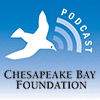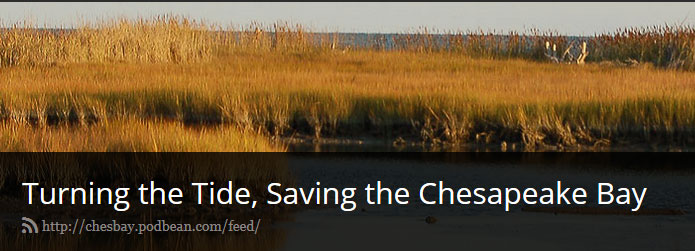

Welcome to Turning the Tide, the Chesapeake Bay Foundation's podcast that ran from March 2015 to September 2018. Join President Will Baker and guests as they share with you their thoughts on what it will really take to turn the tide—to restore our Bay and its rivers and streams.
EPISODES
-
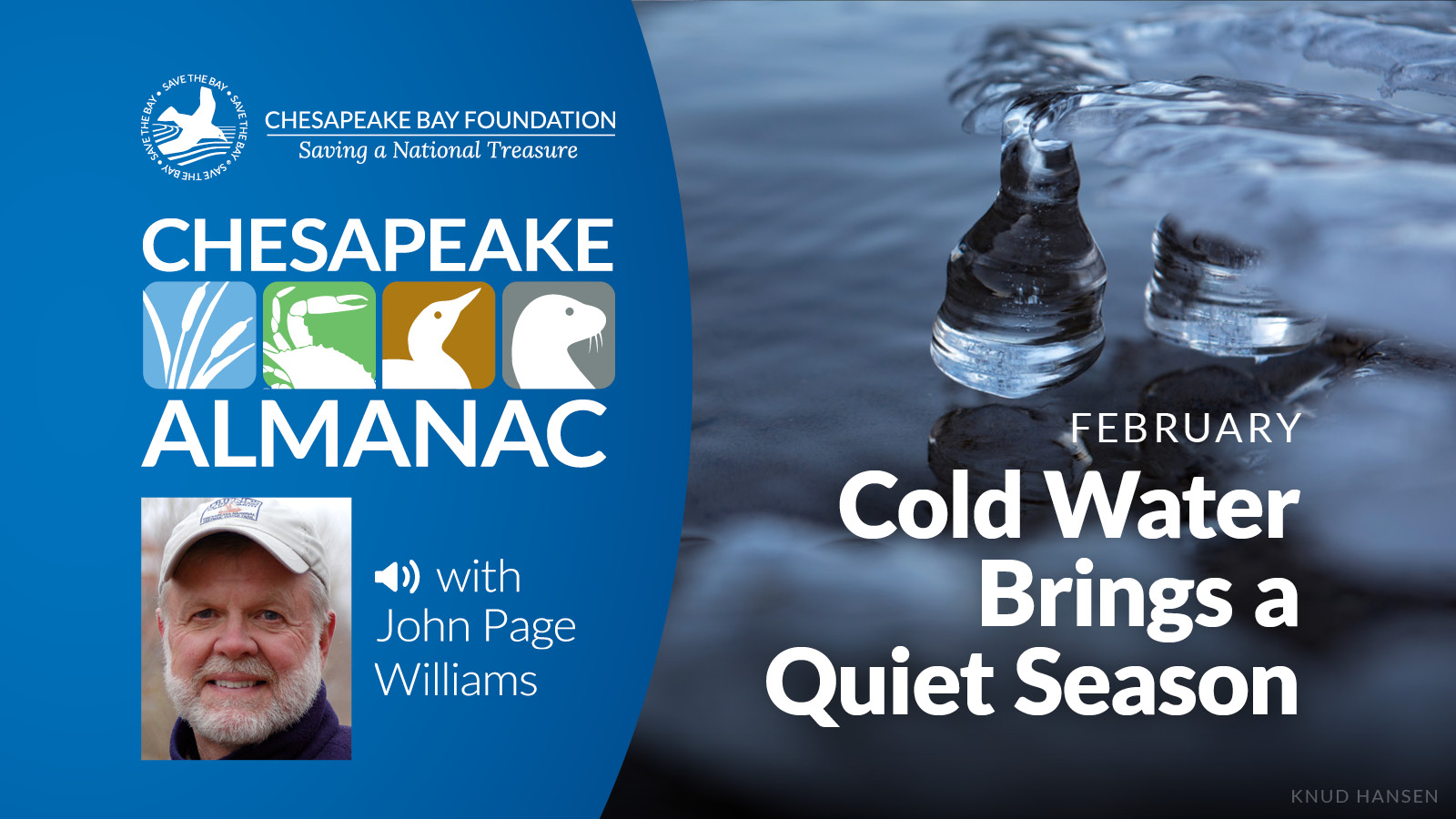
February: Cold Water Brings a Quiet Season
24 Feb 2022While February is the shortest month of the year, to many anglers it can seem like the longest. What happens to the Bay's species when the cold water of winter sets in? In this episode, John Page takes us beneath the surface of February's Bay--who hibernates; who settles into deep, warmer waters; who heads out to sea.
-
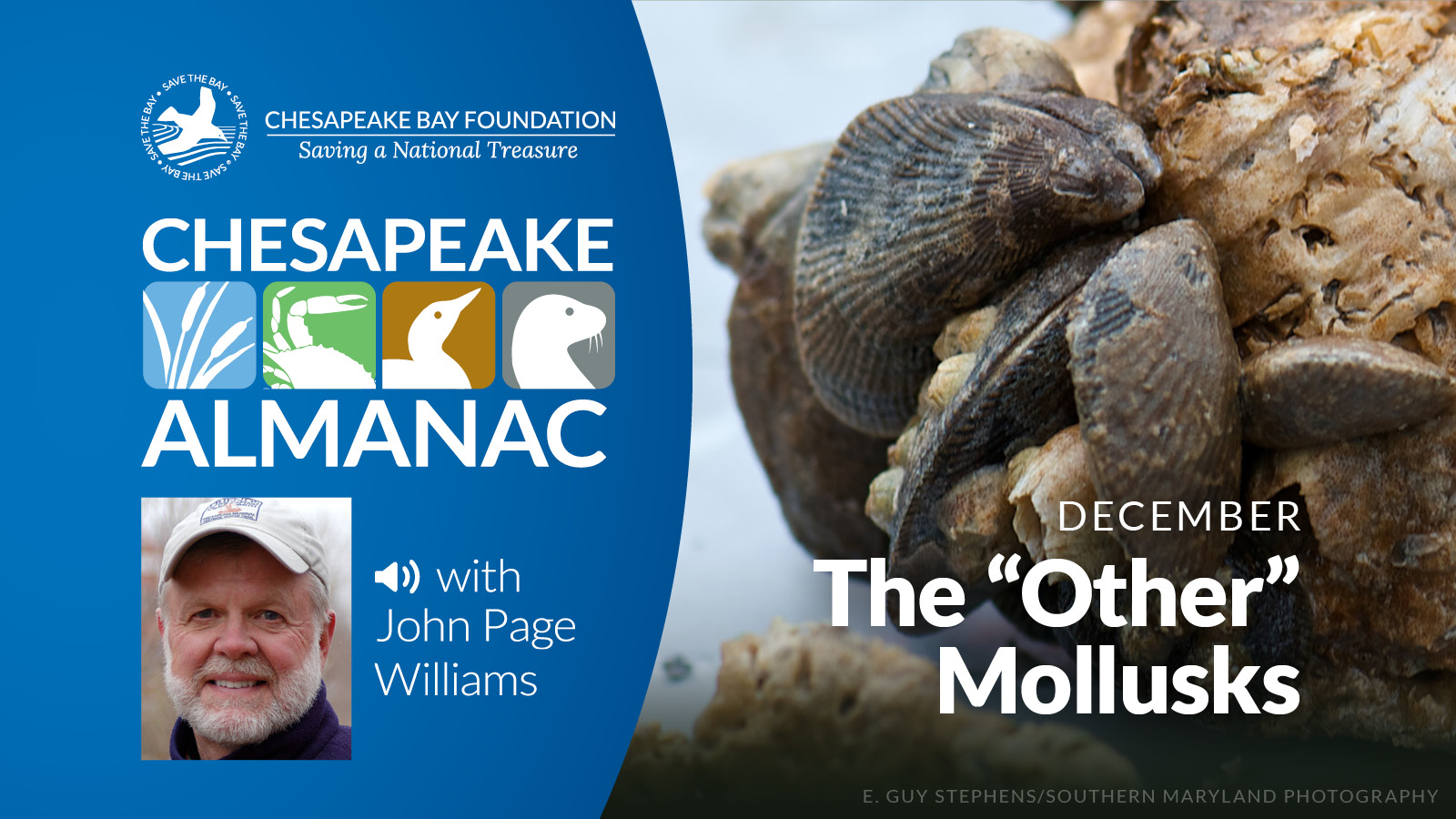
December: The "Other" Mollusks
01 Dec 2021We all know the iconic Chesapeake oyster. But studying less well known members of the Bay community is often a good window into understanding it better. Softshell clams, hard clams, brackish-water clams, hooked mussels, ribbed mussels, and the stout razor clam each have their own niche and specialty--and guidance for eating. In this episode, John Page shares the stories of the "other" Chesapeake mollusks--including one that can dig faster than you can!
-
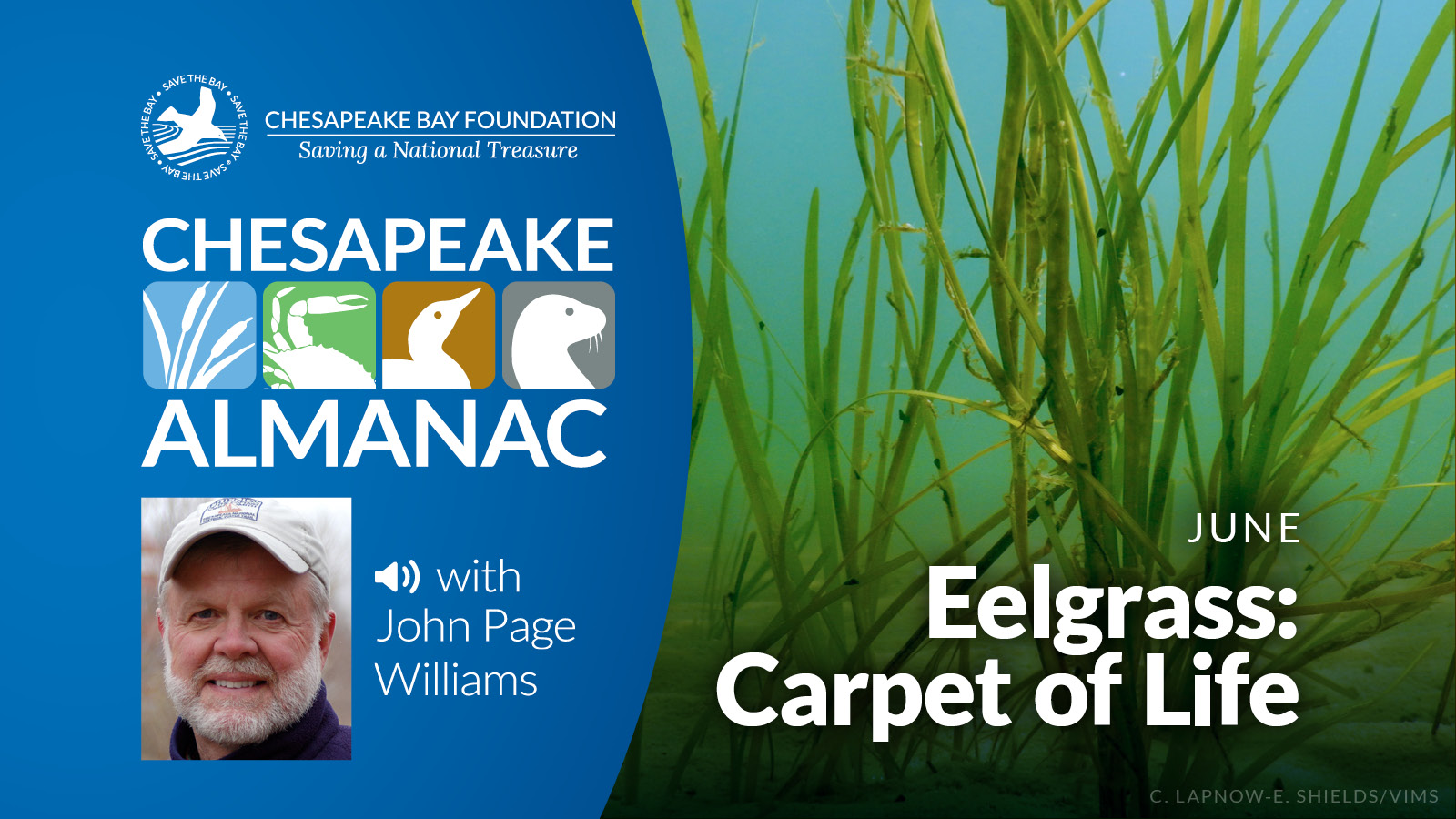
June: Eelgrass - Carpet of Life
30 Jun 2021Join John Page Williams as he shares the story of a young family's first experience investigating the wonders of eelgrass beds and their importance to the Chesapeake Bay.
-
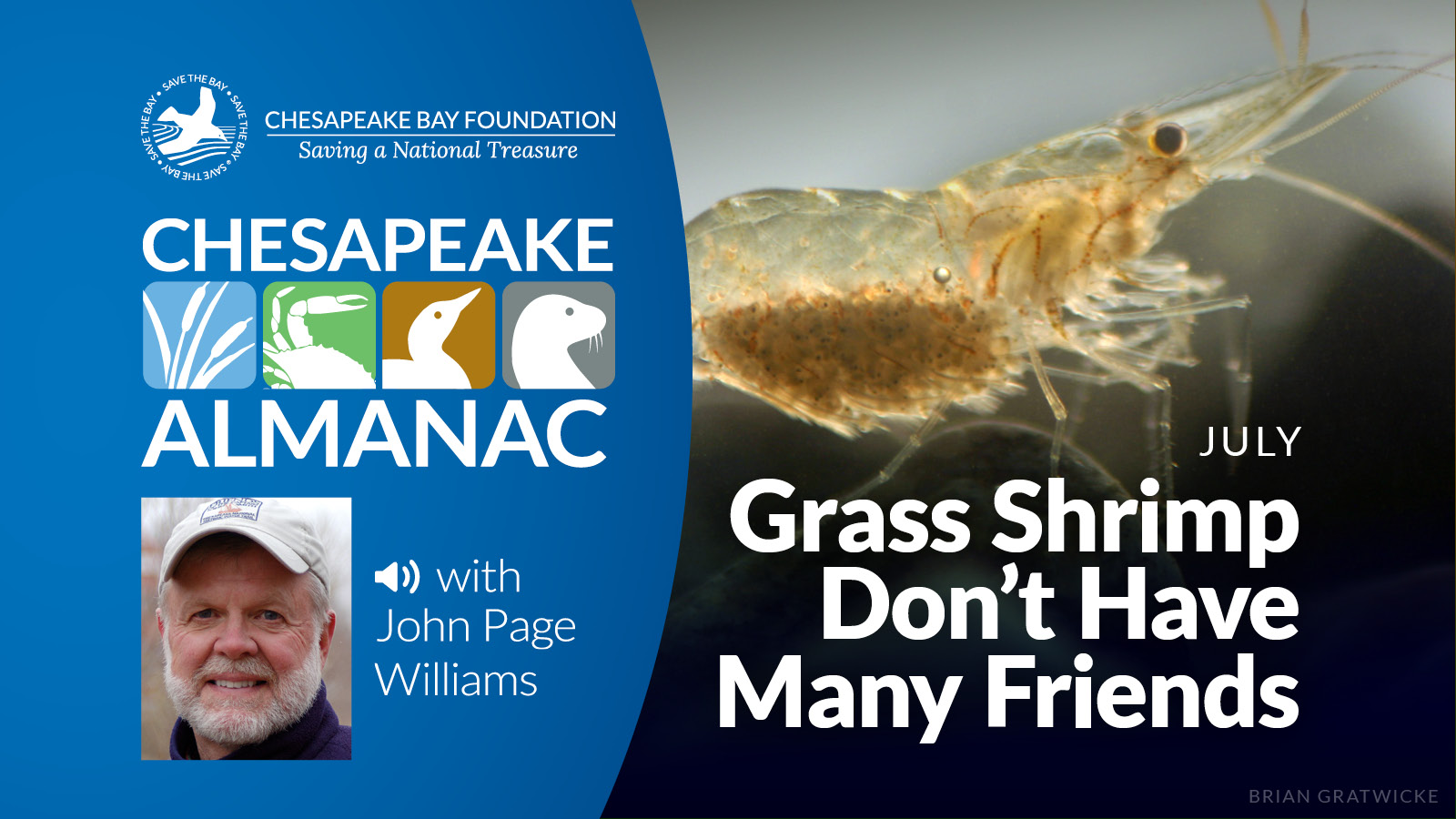
July: Grass Shrimp Don't Have Many Friends
21 Jul 2021Join John Page Williams as he shares anglers' secrets for finding grass shrimp and how to use them to catch your preferred fin fish. Not interested in fishing? They also make a great appetizer!
-
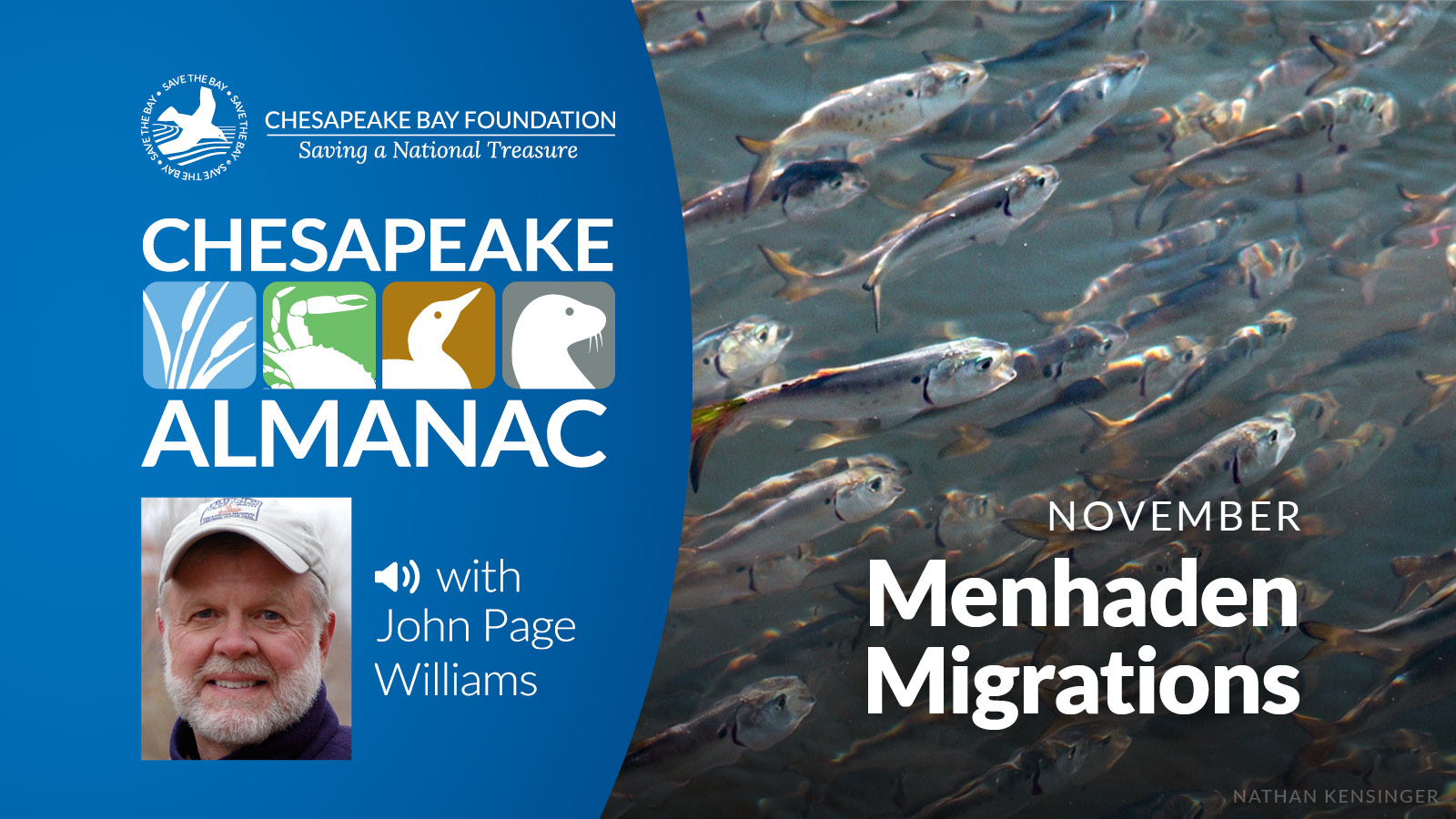
November: Diatoms - Cold-Water Jewel Boxes
17 Nov 2021In Edwardian England, those interested in natural history made a hobby of collecting diatoms, looking at them under a microscope and marveling at their complex shapes, which have been referred to as "intricately carved glass jewel boxes." But those intricate designs are more than stunning to look at. They play an important role in the organism's survival. Listen now and learn more with John Page.
-
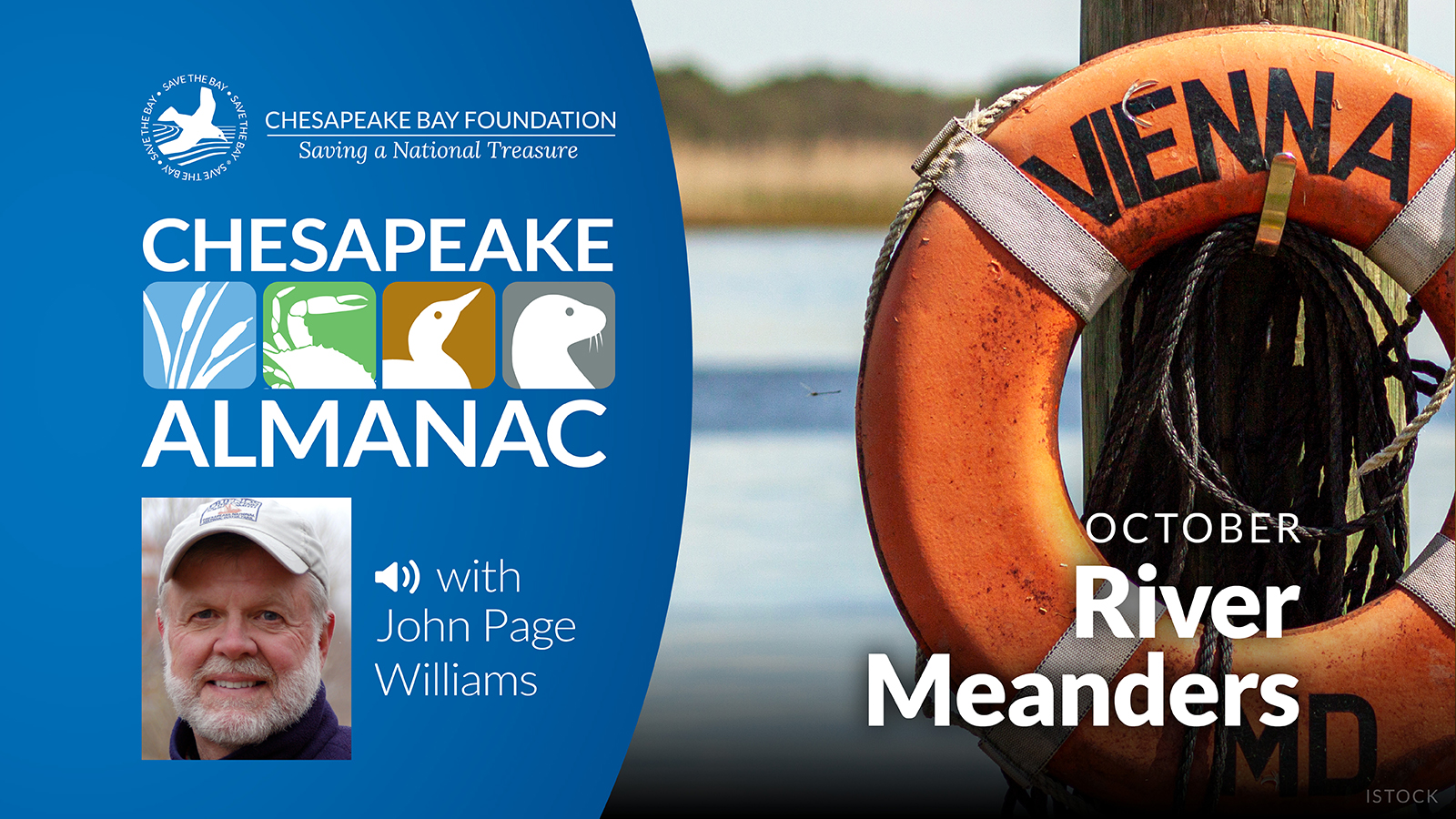
October: River Meanders
27 Oct 2021Vienna is an old town built on the outside of a sweeping curve, called a meander, in the Nanticoke River. In this episode, John Page explains how meanders shape the landscape, why so many early settlements were established on the outsides of these curves, and why wildlife habitat flourishes on the insides.
-
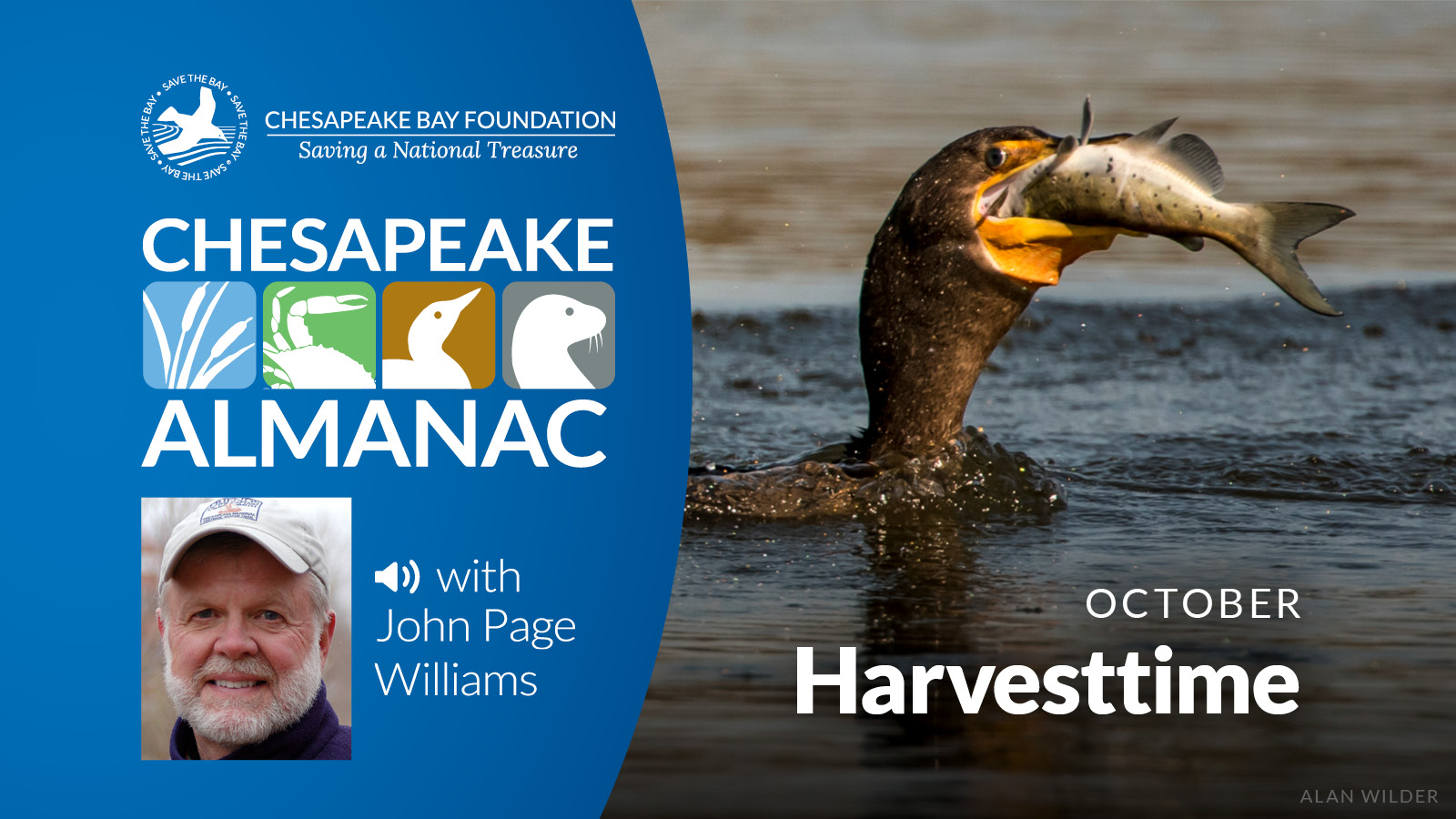
October: Harvesttime
13 Oct 2021As fall sets in, it's harvesttime around the Chesapeake. Finfish have fattened up on summer's bounty and the marshes provide a bumper crop of nutritious seed. Those who will enjoy this harvest are a remarkably varied lot. In this episode, John Page paints an autumn picture of the cornucopia of the Bay and the varied and ever-moving species partaking of its harvest feast.
-
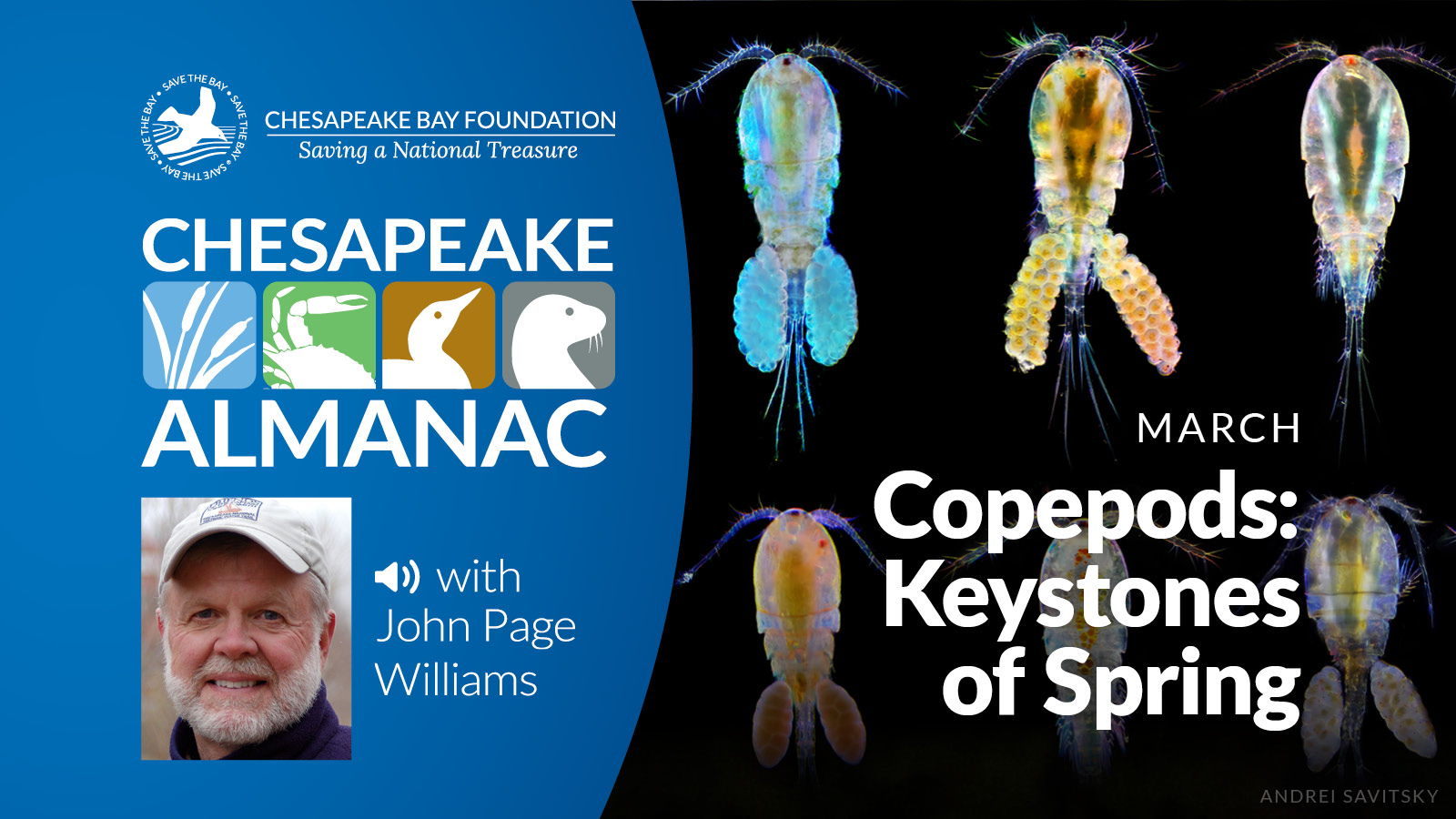
March: Copepods—Keystones of Spring
02 Mar 2022In this episode, John Page Williams brings into focus one of the tiny--but important--mysteries of the Chesapeake. Copepods. They are among the most abundant multicellular animals on earth. But they fly so far under the radar that their species don't even qualify for common names.
-
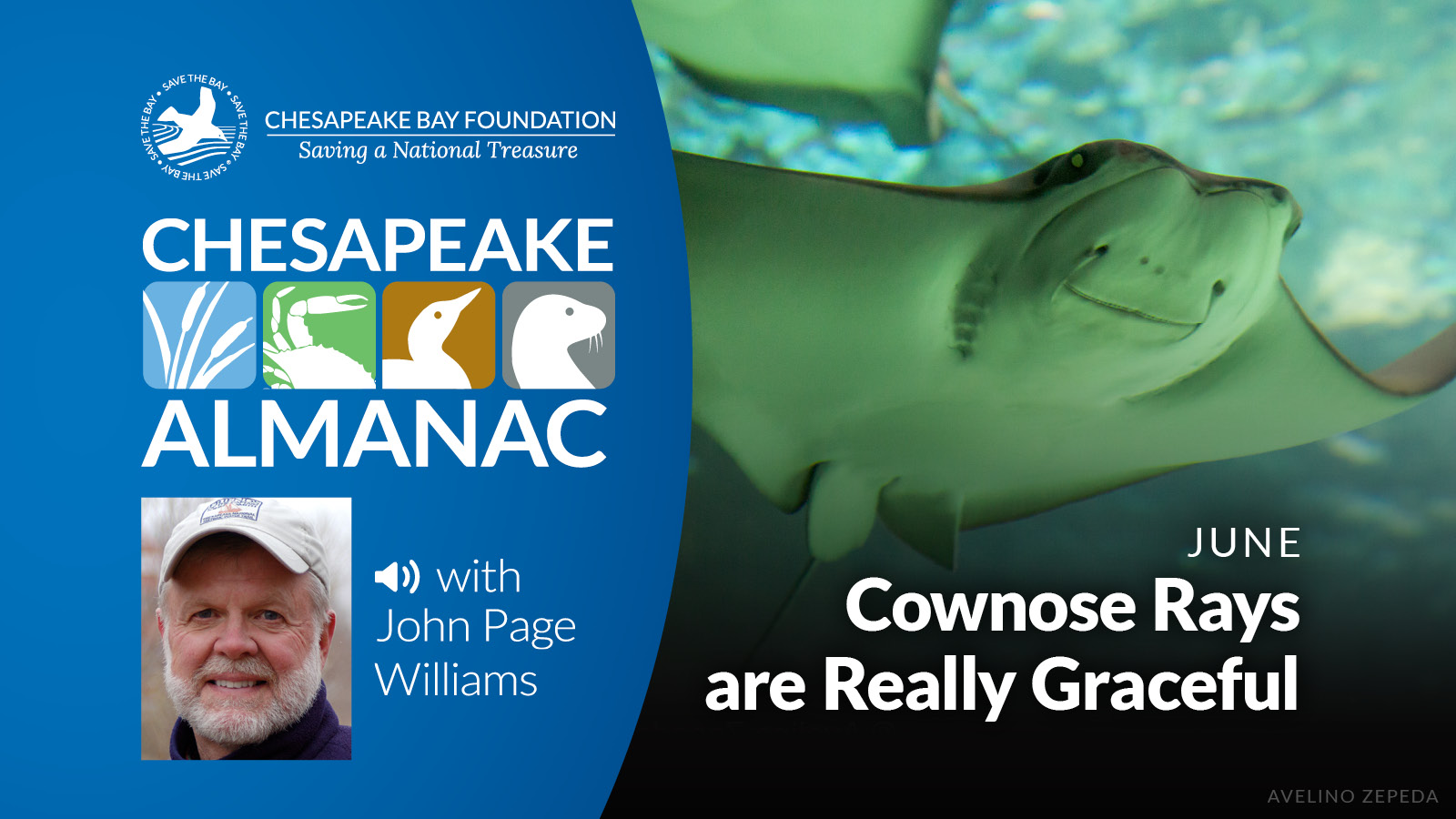
June: Cownose Rays Are Really Graceful
09 Jun 2021Are rays fish? What is the difference between rays and skates? What are the dangers of catching rays? How do you catch one safely? Can you eat them? John Page Williams answers these and other questions about Chesapeake Bay dwelling cownose rays (Rhinoptera bonasus) on this episode of Chesapeake Almanac.
-
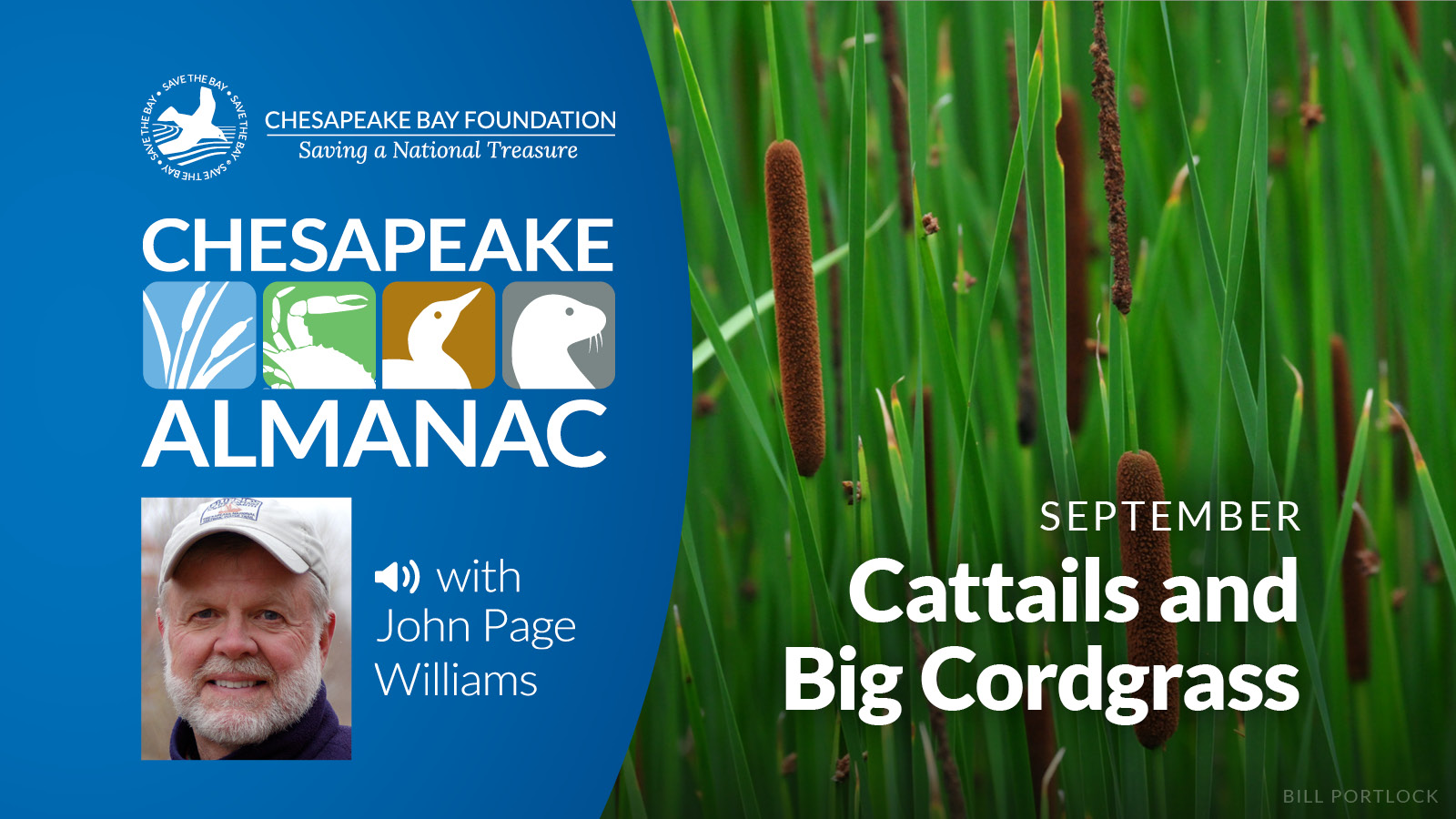
September: Cattails and Big Cordgrass
08 Sep 2021In this episode, John Page introduces us to those plants that often fade into the background of the marsh and gives us a peek at the the birds and animals that call them home.
-
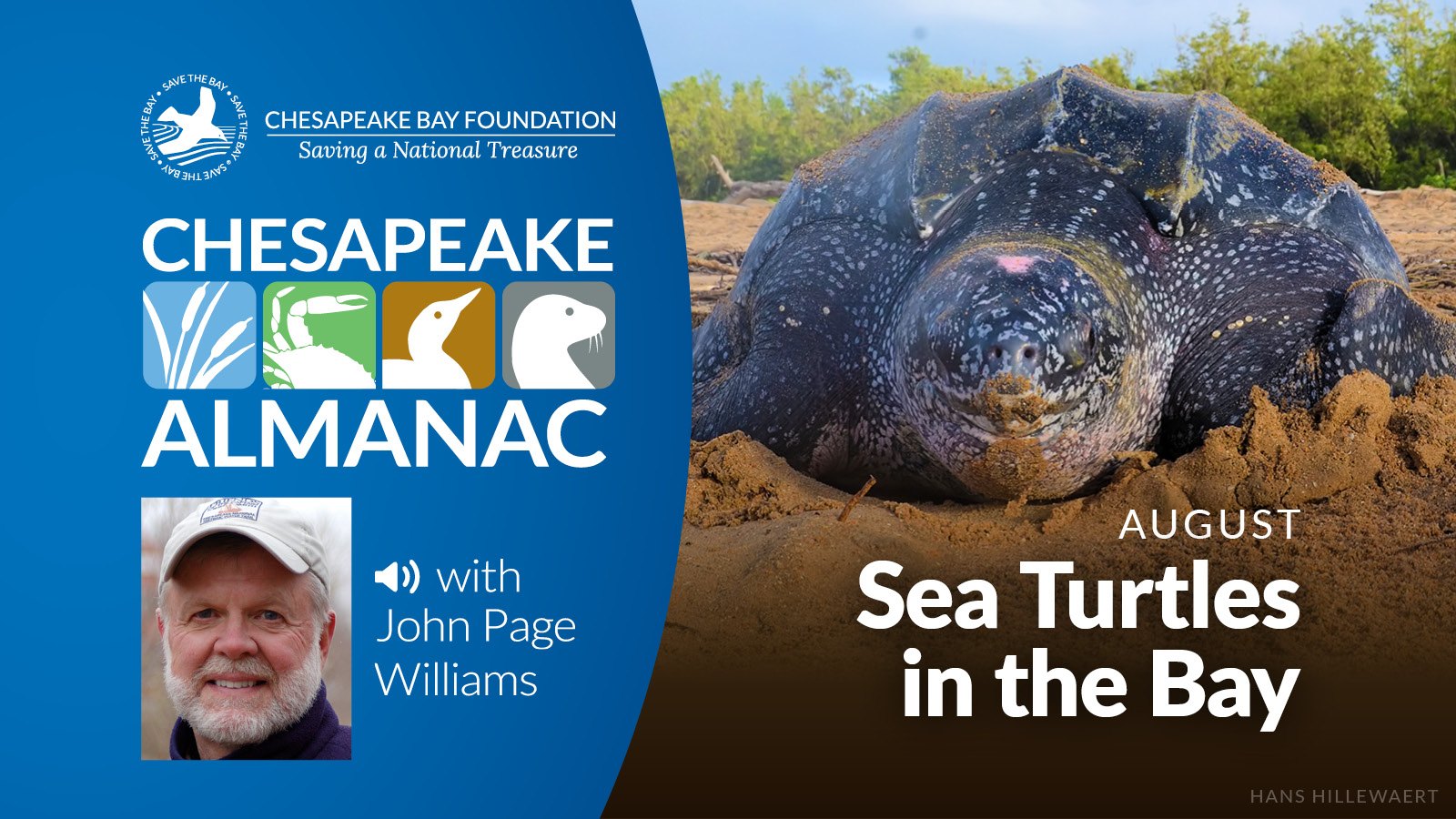
August: Sea Turtles in the Bay
04 Aug 2021Join John Page Williams as he introduces us to some of the mysterious sea turtles that visit the Bay and what more science is trying to learn about them.
-
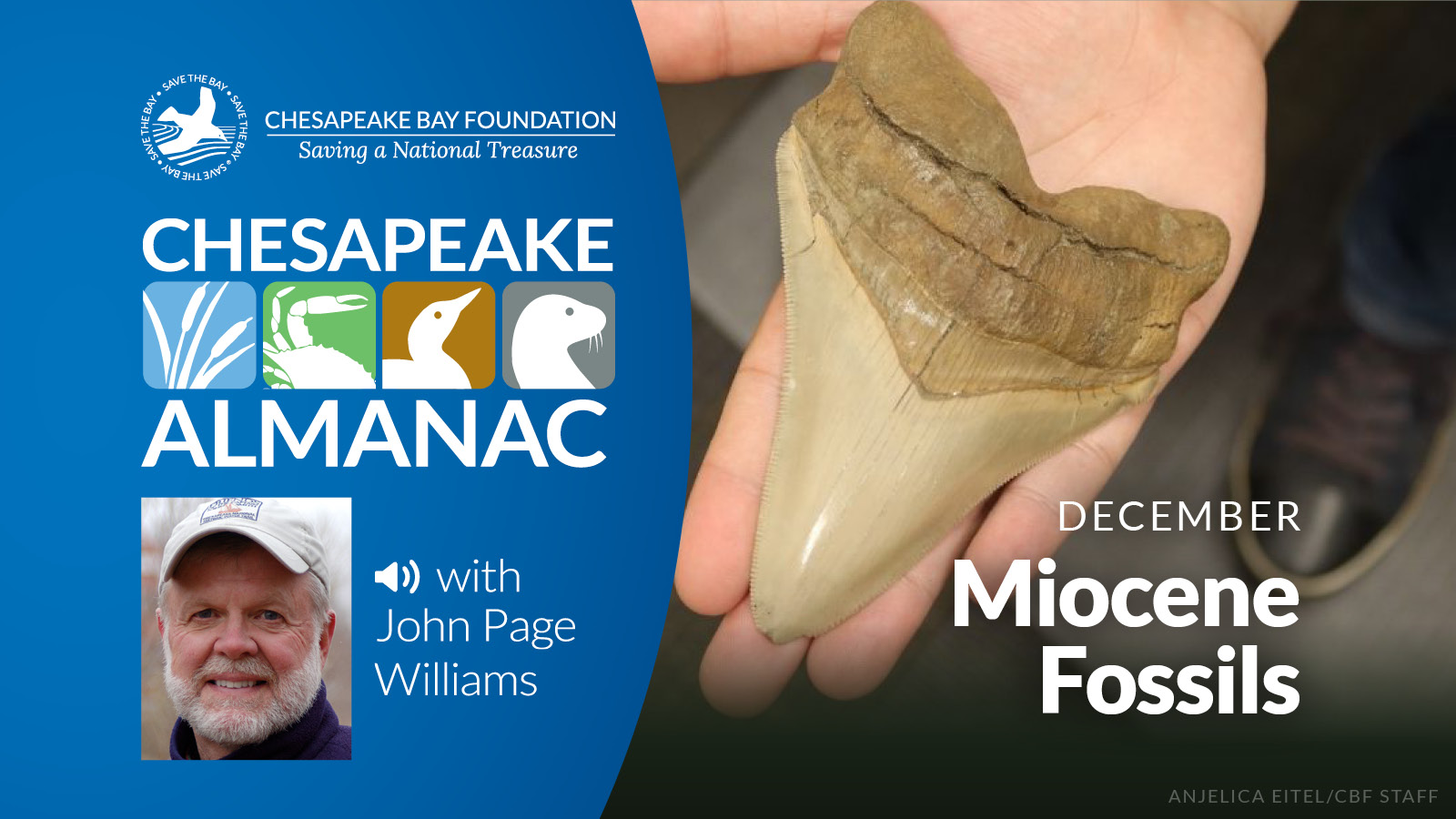
December: Miocene Fossils
22 Dec 2021Fossils put Bay time into perspective. Features of today's region were already recognizable when the Atlantic Ocean flooded the mouth of the Susquehanna River system 15,000 years ago. In this episode, John Page takes us back to the Bay during the Miocene Epoch and points out spots where fossils from that time can still be found, as well as resources for learning more.
| Items 97 - 108 of 129 | Previous | 1 | 2 | 3 | 4 | 5 | 6 | 7 | 8 | 9 | 10 | Next |



